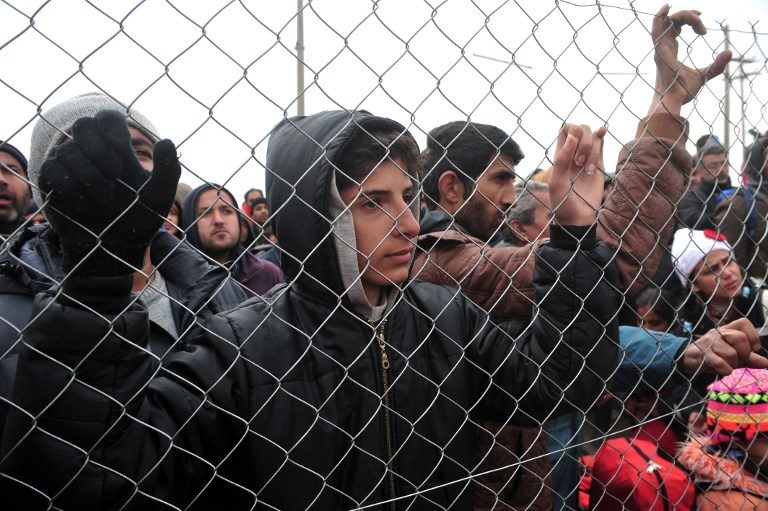
Ten thousand refugees stranded in Greece are ready to be relocated, European Parliament Vice President Dimitris Papadimoulis, who is also a member of Greece’s Syriza, said Tuesday.
The refugees are unable to do so after several eastern European and Balkan states shut their borders earlier this year.
Speaking at a press conference in Brussels that was broadcast live on European Commission’s EbS channel, Papadimoulis said EU member states that refuse to accept refugees were creating a problem and keeping thousands of people trapped in Greece even though they were ready to be relocated.
“We say that people are not numbers, but sometimes numbers say a lot about people, especially when we are talking about thousands of people fleeing war with their families,” he added.
“Europe has to live up to its responsibilities and help,” he said, highlighting that Greece could not carry all the weight of the refugee crisis alone.
The mayor of Greek island of Lesbos, Spyros Galinos, said the EU – Turkish deal signed in March was adding to the problem of a large number of refugees stranded on the eastern Aegean island.
“The deal prohibits the relocation of these people [from their point of entry in the EU]. This is completely absurd and needs to be fixed,” Galinos said, adding that if some refugees and migrants in Lesbos could be moved to other locations, the problem could be resolved.
Responding to a journalist’s question, Syriza’s Member of European Parliament Stelios Kouloglou, attacked the U.K. for not accepting refugees.
“The position of Great Britain towards refugees is outrageous, these people are escaping the Islamic State, and you know who has created this great monster, the Islamic State? The United States and Great Britain; and now they are taking no responsibilities,” Kouloglou said.
Many of some 60,000 migrants and refugees are now left in limbo in Greece, where even finding work in a country struggling with an unemployment rate of around 35% is a challenge. With very few able to leave and more arrivals trickling in, Carrigan says the situation will only become “more and more and more of an issue.”
On Lesbos itself, there are in excess of 5,600 people, more than 2,000 more than the nominal capacity of the camps.
A sharp increase in numbers of migrants arriving in Greece
Despite the refugee deal, the number of refugees and migrants fleeing Turkey to Greece has risen slightly in recent weeks, but humanitarian groups familiar with the situation say it is premature to call it a return to the days of last summer when thousands made the crossing every day.
Frontex said it was the “first noticeable monthly increase” since the EU-Turkey migrant deal came into effect.
According to data from UNHCR, the first week of September saw 1,052 refugees and migrants crossing into Greece, nearly double the number the week before. The month of August saw a total of 3,437 arrivals in Greece, the highest number since April when 3,650 arrived.
Reports suggest the bump in figures might signal the revival of the Eastern Mediterranean route, which saw close to a million land in Greece in 2015, and the imminent collapse of a deal between Turkey and the E.U. to stem the flow of the displaced.
But Lucy Carrigan, a regional officer for Greece with the International Refugee Council, told TIME it is “hard” to know if the increase is part of a larger trend, as the movement of people has been difficult to predict since the closure of borders on the Balkan route and the E.U.-Turkey deal. “While yes, there has been an increase … the numbers are relatively speaking quite small,” says Carrigan, who works on the Greek island of Lesbos. This time last year, 5,000 people were making the crossing every day.
The EU-Turkey deal is certainly facing hurdles following the failed coup in Turkey. It has successfully slowed the flow; since the deal formally came into effect in March, the numbers of migrants leaving Turkey’s shores for Greece dropped from around 27,000 arrivals in March, to a monthly average of around 2,000 between April and July. But sources in Greece say authorities there have struggled to return recent migrant arrivals to Turkey—under the terms of the deal— as Turkish officials in charge of returns were recalled following the coup attempt.
More than 850,000 migrants arrived on the Greek islands last year, many after risking their lives in unseaworthy boats and dinghies.



